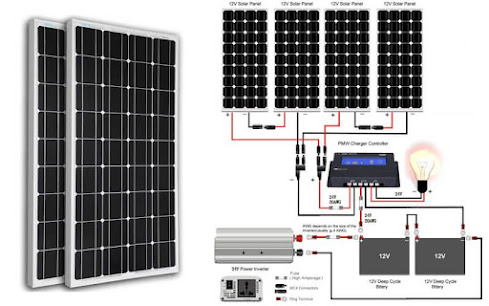Residential Solar Water Heaters - Few Facts to Know
Tired of the tantrums of your electric water heater? Looking for some better and efficient alternative for residential use? Then you may find residential solar water heaters as a good option. The solar water heaters use the clean energy from the sun to heat water for your household use. If you reside in an area that is mostly sunny, then installing residential solar water heaters is highly beneficial for you. Let's take a look at some of the facts about residential solar water heaters below to understand more about these devices:
Solar powered water heaters make use of energy collectors
All the solar powered water heaters come with energy collectors where the tap water gets heated up. The best collector for your home depends on the climate in your area, your property and the intended use of the hot water. Typically there are three main types of energy collectors for solar water heater that include Flat plate, integral collector storage, and evacuated tube collectors. Flat plate collectors are waterproof boxes that are fitted with dark absorber plates. Integral collector storage (ICS) also known as batch systems come with black tanks or tubes in a waterproof box for preheating water with solar energy. Evacuated tube solar collectors come with special glass tubes, metal tubes and fins that absorb solar energy and reduce heat loss. All these three solar energy collectors depend on water storage. Solar energy systems are either active or passive irrespective of the collector type.
Active Solar Water Heating Systems Use Pumps
In an active solar water heating system, pumps move water or a heat exchange fluid from the water storage area, through the collector and back to your household plumbing system. Your water storage is located within your home. If you reside in an area with chilly winters, then heat exchange fluids are your best bet. Propylene glycol or any other standard liquid goes up to the rooftop heat collector and then pass down through pipes in your hot water tank to heat the water. If you reside in an area where freezing is not an issue, your household water goes directly to the collector and directly comes down into a hot water storage tank or the plumbing pipes. If using an active solar water heating system, then you need a power source to provide energy for your pump. Solar panels have the ability to produce adequate energy for running most types of residential hot water pump systems.
Passive Solar Heaters Do Not Need Pumps
Passive solar water heater systems are the simplest types. There is no need for energy, electrical components or additional solar panels are required for operating the system. These systems depend largely on a large tank that sits on the top of your roof. As the sun heats the water directly, the force of gravity sends the water down to your hot water storage .
The active solar water heating system is more expensive than the passive solar water heating system. But the active systems are more reliable than passive systems.
Conclusion:
Latitude51 Solar offers some of the best quality residential solar water heaters at the best price. Visit https://www.latitude51solar.ca/residential-solar-water to learn more.




Comments
Post a Comment